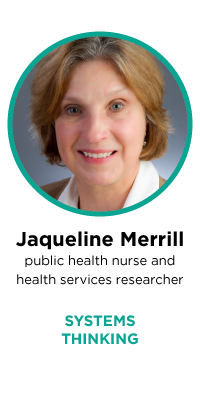Strategic Skills in Public Health: Building an Open Source Competency Map
- By: The Public Health Learning Network
- Date
- Systems Thinking
- Change Management
- Persuasive Communication
- Data Analytics
- Problem Solving
- Diversity and Inclusion
- Resource Management
- Policy Engagement
Recent public health workforce initiatives have identified the political, economic, social, and health-related trends that require the workers to apply skills and approaches well beyond traditional public health science skills (PHLN Strategic Workforce Action Agenda). In its report Building Skills for a More Strategic Public Health Workforce: A Call to Action, the deBeaumont Foundation called out eight specific strategic skills the public health workforce needs to be responsive to today’s public health challenges. The Health Resources and Services Administration (HRSA) reinforced this call by requiring the 10 Regional Public Health Training Centers (RPHTCs) funded under their training center program to concentrate efforts on building workforce capacity around these same eight strategic skills.
Motivated to provide the most pertinent and unique training in the strategic skill areas for public health professionals, three RPHTCs and the National Coordinating Center for Public Health Training (NCCPHT) at the National Network of Public Health Institutes (NNPHI) formed a working group to:
- Identify competencies for strategic skills that can be used to build training and inform job descriptions and workforce development initiatives,
- Prioritize the competencies in terms of importance to today’s practice, and
- Identify existing trainings and highlight these on the Public Health Learning Navigator.
Focusing on the first three strategic skills as a pilot initiative—systems thinking, change management, and persuasive communication—the Region 2 PHTC, Region IV PHTC, and Region V PHTC searched for related competencies across a broad range of diverse fields,including public health, health administration, nursing, business, engineering, and communications. The RPHTCs identified a total of 392 competencies related to the three strategic skills. The workgroup then engaged three subject matter experts to prioritize which of the 392 competencies were most important to the field of public health today. The culmination of this work is an initial Open Source Strategic Skill Competency Map that will aid public health professionals and educators interested in utilizing high-priority competencies to inform training, professional development, and workforce development.
Although identifying competencies assists in the development of new trainings, the workgroup wanted to provide public health professionals with a series of strategic skill trainings that are currently available. The workgroup identified 53 relevant online trainings in systems thinking, change management, and persuasive communication. The Strategic Skill Environmental Scan report describes the full process used to search for and identify these trainings.
Of the 53 available trainings, one-third were developed or marketed by a RPHTC. Twenty-seven trainings have been certified quality by the Public Health Learning Navigator peer review process, and this number continues to grow quickly. To find the trainings that have successfully passed the quality review process, simply search “strategic skills” on the Learning Navigator.
The work to define and train public health professionals in the strategic skills is just beginning. The resources described above are living projects that will be updated with the remaining strategic skill areas in the coming months: data analytics, problem solving, diversity and inclusion, resource management, and policy engagement.
Want to keep up with this work as it grows?
Sign up here for Elevate.
Know of a great training in a strategic skill area?
Nominate it here.
Want to build your own strategic skills?
Check out the learning experiences that are available on the Learning Navigator.



 Subscribe To Our Communications
Subscribe To Our Communications